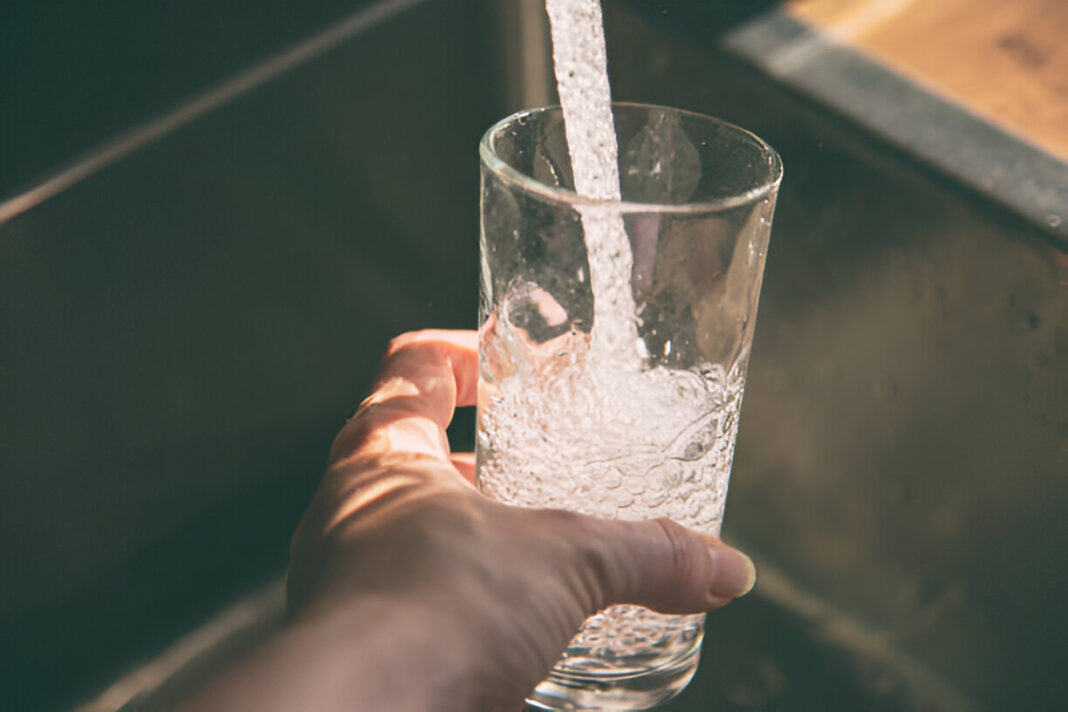It’s a scorching summer day, and you reach for a glass of cold water. As you sip, you think about it “How clean is the water from your tap?” You rely on your plumbing to deliver safe drinking water, but what if the pipes carrying it aren’t up to the task? Most people don’t think about the pipes hidden behind walls, but the type of pipes in your home can affect the quality of your drinking water.
Old or corroded pipes may leach harmful substances into the water, putting your family’s health at risk. Over time, pipes made of outdated materials can wear down, which allows contaminants to seep into your water supply. The right kind of pipes, however, ensures that water remains clean, safe, and free from impurities.
In this blog, we’ll explore the best options for safe drinking water pipes and why switching to modern, reliable materials is essential for your family’s health. Are your pipes protecting or endangering your water quality? Let’s find out!
Why Do We Need Plastic Pipes For Safe and Clean Drinking Water?
Plastic pipes have become an essential part of modern plumbing systems. But why are they so important for ensuring safe and clean drinking water? Let’s discuss.
- Corrosion-Resistant: Plastic pipes, such as UPVC pipes and fittings, are highly resistant to corrosion, unlike metal pipes. This ensures that your drinking water stays free from rust and other harmful particles that can enter your water through corroded pipes.
- Non-Toxic: Plastic pipes used for drinking water are made from materials that do not leach harmful chemicals into the water. This makes them a safer option than other materials that might introduce toxins into the supply.
- Durable and Long-Lasting: Plastic pipes, especially UPVC and Schedule 40 pipes, are known for their durability. They can last for decades without the need for frequent replacements, ensuring that your water system remains intact and reliable.
- Easy Installation and Maintenance: Plastic pipes are lightweight and flexible, which makes them easier to install and maintain compared to heavier materials like metal or concrete. This reduces the chances of leaks or breaks, which can compromise water quality.
- Cost-Effective: Plastic pipes are often more affordable than metal alternatives, both in terms of upfront costs and long-term maintenance. This makes them a practical option for homeowners and businesses alike.
What Are the Health Benefits of Safe and Clean Drinking Water Using Plastic Pipes?
The quality of your water is directly linked to the quality of your piping system. Here are some health benefits of using plastic pipes for clean drinking water:
- Reduced Contaminants: Plastic pipes are less likely to introduce harmful contaminants into the water, ensuring a cleaner and safer drinking supply for you and your family.
- Improved Water Taste: Pipes like UPVC and Schedule 40 pipes do not corrode, so they don’t affect the taste or odor of your water, offering a purer drinking experience.
- Lower Risk of Waterborne Illnesses: Plastic pipes can reduce the chances of waterborne infections by preventing dangerous chemicals and bacteria from entering your water supply.
- Better Hydration: When water is safe and clean, you are more likely to stay properly hydrated, which is crucial for overall health and bodily functions.
- Enhanced Well-Being: Clean drinking water supports vital bodily functions, from digestion to skin health. With plastic pipes, you can trust that your water system is delivering health-promoting hydration.
What Are the Signs You Need to Replace Your Drinking Water Pipes?
Regular inspection of your drinking water pipes is essential. Below are the key signs that you might need to replace them:
Discolored Water
If you notice brown, yellow, or cloudy water coming from your taps, it’s likely that your pipes are rusting or corroding. Corroded pipes can lead to contamination, which may cause health risks.
- How to fix it? Replacing old, corroded pipes with plastic alternatives like UPVC pipes ensures clean and safe water for consumption.
Low Water Pressure
If your water pressure has dropped, it could indicate leaks or blockages within the pipes. Low pressure can also suggest that your pipes are old and wearing down.
- How to fix it? Identify and fix leaks immediately. If the problem persists, consider replacing old pipes with schedule 40 pipes to restore optimal water pressure.
Frequent Leaks
Frequent leaks suggest that your pipes are deteriorating. Small leaks may not seem like a big issue, but over time they can lead to water contamination and structural damage.
- How to fix it? It’s best to replace the leaking sections of your pipes with new, high-quality plastic pipes that are less prone to damage.
Unpleasant Smell or Taste
If your water has an odd smell or taste, it could indicate contamination due to degraded pipes. This not only affects the quality of your water but could also pose a health risk.
- How to fix it? Replacing faulty pipes with non-toxic plastic options can improve the taste and odor of your drinking water.
Visible Corrosion or Rust on Pipes
If you can visibly see corrosion on your pipes, it’s a clear sign that they need replacing. Corroded pipes are more likely to leach harmful substances into your water supply.
- How to fix it? Switch to corrosion-resistant plastic pipes like UPVC pipes to eliminate the risk of contaminants entering your water system.
What Are the Health Risks of Faulty Drinking Water Pipes?
Using the wrong or outdated pipes can lead to serious health issues. Let’s look at the major risks:
- Contamination from Corrosion: Old metal pipes, especially those made from lead, can corrode over time. This corrosion introduces harmful particles, which may lead to lead poisoning or other dangerous contaminants in your drinking water.
- Bacterial Growth: Cracks or leaks in pipes can result in bacterial contamination, leading to waterborne illnesses like E. coli or Legionella. Proper piping materials like UPVC pipes and fittings help prevent this.
- Chemical Leaching: Some pipes may allow chemicals to leach into the water. This is especially true for older plastic pipes made from inferior materials. Choosing high-quality plastic pipes like Schedule 40 pipes helps avoid this issue.
- Water Discoloration: Faulty pipes can cause water to turn brown or yellow, a clear sign that there are contaminants present, which can cause digestive issues or other health problems.
- Unpleasant Taste and Odor: Faulty pipes can affect the taste and smell of your drinking water, making it unappealing and potentially harmful.
Why Choose Plastic Pipes for Your Drinking Water System?
Plastic pipes are a great choice for your drinking water system because they offer durability and safety. These pipes resist corrosion, which keeps your water free from harmful chemicals and contaminants. Plastic pipes like PVC are also lightweight and easy to install, reducing labor costs and time. They are suitable for different plumbing needs. Since they don’t rust, they help maintain water quality over time, which ensures you always have clean, safe water. Also, plastic pipes are cost-effective, long-lasting, and require less maintenance, which makes them an ideal choice for a reliable drinking water system.
What Types of Plastic Pipes Can You Use for Your Drinking Water System?
UPVC Pipes
UPVC (Unplasticized Polyvinyl Chloride) pipes are preferred for drinking water systems as they are non-toxic and corrosion-resistant. They are strong and can handle high pressure, which makes them suitable for both residential and industrial use. UPVC pipes do not degrade or pollute water, which leads to safe and clean drinking water. Their lightweight design also makes them easy to install, reducing labor costs and time.
Schedule 40 Pipes
Schedule 40 pipes are known for their thick walls, which make them highly durable and suitable for high-pressure water systems. These PVC pipes have exceptional chemical resistance, which ensures the water is free of pollutants. They are also long-lasting and require minimal maintenance, which makes them a cost-effective choice for a consistent water supply.
CPVC Pipes
CPVC (Chlorinated Polyvinyl Chloride) pipes are designed to handle both hot and cold water, making them versatile for various water systems. They are resistant to corrosion and scale buildup, which helps maintain water quality. CPVC pipes are also easy to install and durable, providing a long-lasting solution for safe drinking water systems.
PEX Pipes
PEX (Cross-Linked Polyethylene) pipes are a popular choice for drinking water systems due to their flexibility and resistance to both hot and cold temperatures. These pipes are durable and can expand without cracking, making them ideal for areas with extreme temperature fluctuations. PEX pipes also resist corrosion and scale buildup, ensuring clean and safe drinking water. They are easy to install, making them a convenient option for both residential and commercial water systems.
Polybutylene Pipes
Polybutylene pipes are lightweight, flexible, and cost-effective, making them a great option for drinking water systems. These pipes are resistant to both freezing and high temperatures, providing versatility in various climates. They are also resistant to chemical reactions, ensuring that the water stays pure and free from contaminants. Polybutylene pipes are easy to install and maintain, offering a long-lasting solution for clean water delivery.
The Importance of Regular Pipe Inspections
Maintaining a clean and safe drinking water system requires regular pipe inspections. Pipes can deteriorate over time, which causes leaks, obstructions, or contamination. Regular inspections help to identify these issues before they become major problems. Schedule regular checks to maintain your water supply system efficiently, avoid costly repairs, and ensure that your drinking water is clean and safe for your family.
Plastic Pipes vs. Other Pipes: Which Is Ideal for a Drinking Water System?
| Feature | Plastic Pipes | Metal Pipes | Concrete Pipes |
| Corrosion Resistance | Excellent (Non-corrosive) | Prone to corrosion | Prone to cracks and leaks |
| Durability | Long-lasting, especially with UPVC | Shorter lifespan, especially if corroded | Heavy and prone to environmental wear |
| Installation | Lightweight and easy to install | Difficult and costly to install | Requires heavy machinery for installation |
| Maintenance | Low maintenance | Frequent repairs due to corrosion or leaks | Requires more maintenance and repairs |
| Cost | Cost-effective | Expensive due to material and labor costs | High cost due to weight and complexity |
The End Note
Plastic pipes, such as UPVC and Schedule 40 pipes, offer a reliable and safe solution for delivering clean drinking water. With proper installation and maintenance, they can last for decades, ensuring your family has access to fresh, uncontaminated water. Keep an eye out for the signs of faulty pipes and address any issues promptly to keep your water system in top shape.
Adamjee DuraBuilt is here to help. We are the largest manufacturer of PVC pipe fittings in Pakistan and are committed to providing high-quality, durable plastic pipes to meet your water supply needs.
Be sure to check back for more exciting news on Coknews!




